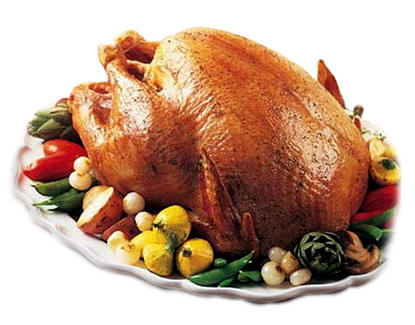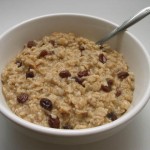Getting a good night’s sleep is important. It is the time our bodies work through cleansing and re-energizing our system for another full day. Lack of sleep causes memory loss, specially short term memory loss because lack of rest makes it hard for someone to focus on what they’re doing. The foods we eat have a big effect on our sleep and certain healthy foods are beneficial because they can stimulate production of serotonin and melatonin, the hormones responsible for good sleep.
We list down below some of the healthy foods that are advisable for eating to help induce a good night’s sleep:
 Healthy Food #1: Warm Milk
Healthy Food #1: Warm Milk
A glass of warm milk is a well known effective organic healthy food for good sleep. Milk and dairy are healthy foods contain tryptophan, an amino acid with strong sedative properties which gets converted in our body into serotonin and melatonin and improves our sleep quality to a great extent. In addition, milk is a great healthy food source of calcium necessary to our body to digest tryptophan.
Healthy Food #2: Cherries
Cherries are one of the only organic healthy food sources of melatonin, the chemical that controls the body’s internal clock to regulate sleep. Cherries are also healthy foods that are rich in antioxidants, good for fighting off free radicals, another good reason to consider eating this organic healthy food.
Healthy Food #3: Natural Honey
Honey is an effective natural relaxant. It has been used for centuries in traditional Chinese medicine for insomnia and inducing sleep. Honey is an organic healthy food rich in glucose, which helps calm down our nervous system and relax.
Healthy Food #4: Herbal Tea
Herbal tea is an organic healthy food well known to be another source of antioxidants and a very effective natural remedy to promote good and restful sleep. Chamomile and mint are both good organic healthy food choices because they have a calming and relaxing effect on stress. Melissa is another good organic healthy food choice because of its strong sedative, soothing and calming therapeutic effects.
Healthy Food #5: Bananas
Bananas are healthy foods rich with tryptophan and help to stimulate synthesis of melatonin and serotonin, natural neurotransmitters which promote sleepiness, relaxation and feelings of calm, so they are an excellent remedy for good sleep. Plus they contain a variety of B-group vitamins and Vitamin B12 which are especially useful when combating insomnia.
Healthy Food #6: Almonds
Almonds and some types of nuts are considered by many to be the best sleep-indulging healthy food. Not only are these healthy foods a great source of antioxidants, they are also a great source of tryptophan, which helps you to relax and calm down. Almonds also contain magnesium, known for its excellent muscle relaxing properties.
 Healthy Food #7: Turkey
Healthy Food #7: Turkey
Turkey is the most famous healthy food source of tryptophan, credited with all those Thanksgiving naps. But that’s actually a modern folklore. Tryptophan works when your stomach’s basically empty, not overstuffed, and when there are some carbs around, not tons of protein. But put a lean slice or two of this healthy food on some whole-wheat bread mid-evening, and you’ve got one of the best sleep inducers in your kitchen.
Healthy Food #8: Oatmeal
Eating a bowl of oatmeal not only will greatly help in supplying the body with antioxidants called selenium, this healthy food will also trigger insulin production, raising blood sugar naturally and making you feel sleepy.
Healthy Food #9: Potatoes
A small baked spud won’t overwhelm your GI tract, and it clears away acids that can interfere with yawn-inducing tryptophan. To up the soothing effects of this sleep inducing healthy food, mash it with warm milk.
Healthy Food #10: Flaxseeds
This healthy food is rich in omega 3 fatty acids, a natural mood lifter so when life goes awry and feeling down is keeping you up late at night, try sprinkling 2 tablespoons of this healthy food on your bedtime oatmeal.
Healthy Food #11: Whole-wheat bread
A slice of toast with your tea and honey will release insulin, which helps tryptophan get to your brain, where it’s converted to serotonin and quietly murmurs “time to sleep”.














